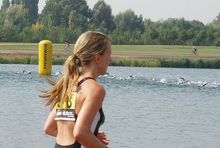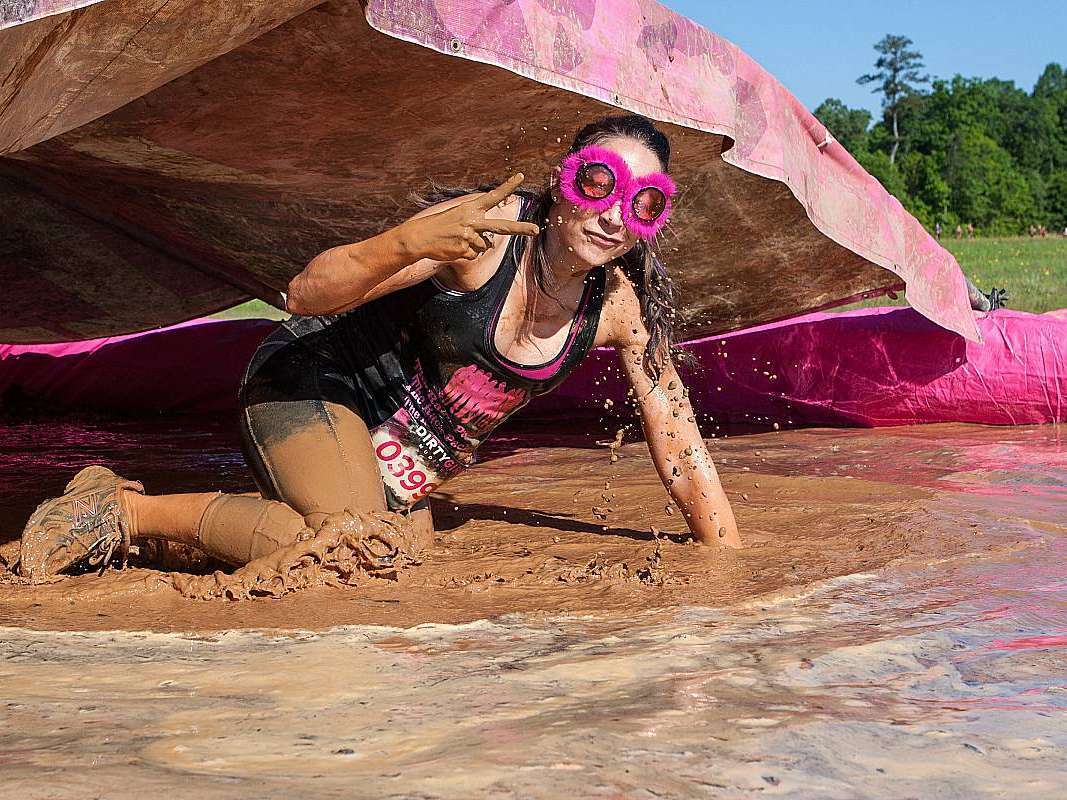For the new triathlete, establishing a triathlon training plan can be daunting. There are several challenges.
 First, you need to train in 3 different sports: swimming, biking, running. Secondly, there are an endless number of training plans to choose from.
First, you need to train in 3 different sports: swimming, biking, running. Secondly, there are an endless number of training plans to choose from.
On the one hand, there is a “science” to triathlon training. But on the other hand, it’s not brain surgery either.
I would encourage you to think of triathlon training as both a science and an art.
The science part is recognizing the underlying training principles that should be the foundation of every triathlon training plan.
The art is weaving those principles into a plan that fits who you are and your unique desires and needs.
The Triathlete’s Training Plan
In a nutshell, the fundamental training principles for triathlons include the following:
1.
Triathlon training is year-round, including days and weeks of rest and recovery.
2. You must build an endurance base for swimming, biking, and running.
3. After you establish your endurance base, intensity training in each area will improve your performance.
4. Eventually, you will need to incorporate training sessions (Bricks) that combine 2 of the areas (swim/bike, bike/run) and then all 3 together.
5. You should identify key triathlon events you want to do, and then structure your training plan so you peak at the time of your next race.
6. Every good triathlon training plan incorporates some aspect of technique development, strength training, upper body stretching and lower body stretching, and a sound nutritional plan.
How you incorporate these 6 principles into a triathlon training plan will differ from person to person in all sorts of ways.
Variations To A Triathlete’s Training Plan
I’m guessing that most triathlon experts think of training as a science; you construct the perfect plan on paper, and follow it religiously.
I’m more prone to change up my training plan in various ways, if for no other reason than sometimes I get sick of doing the same thing all the time.
Let me give you some examples.
-
During one season, I joined a Masters Swim Class and let that be my swim training. During that period, I added a day when I did endurance swims in open water. What we did in our swim classes didn’t match up with all the numbers on my training plan. I did it anyway. Next season, I’m considering joining a yoga class, which will be the stretching component of my triathlon training plan.
-
The experts also say that doing spin classes aren’t all that helpful because a spin bike does not come close to replicating your road bike or tri bike. I do spin classes anyway. Occasionally, I just don’t feel like gearing up for a ride on the road and dealing with traffic, and so I do a spin class at my local YMCA. I was surprised to find a couple other triathletes doing the same thing. We keep it a secret though; we don’t want to anger the tri gods.
-
I have also diversified the events I do. Have you ever considered running a marathon up a mountain, or biking hundreds of miles, doing an “off road” triathlon, or even focusing on winning a Sprint Triathlon? In other words, the only game in town isn’t just doing the Hawaii Ironman. Heck, even if you are capable of doing it, you may never get the chance because of the difficulty of getting in. Most triathletes feel that diversifying the kinds of endurance events they do helped them be a better triathlete.
-
I have generally become less stressed about my triathlon training plan. One day last week, my neighbor asked if I was interested in doing a bike ride with him. There was a time when I would have declined because it wasn’t “part of the plan.” These days I am much more inclined to do it.
Obviously, you need to construct a triathlon training plan based on sound principles, and then follow that plan faithfully. But also remember that you are not only a triathlete, and your life isn’t only about doing triathlons.
There are no triathlon gods waiting to strike you down if you bike on a day when you were supposed to run, or eat a peanut butter sandwich when it was supposed to be an organic tuna salad sandwich.
This is a “fun times guide,” which is a good barometer of your experience as a triathlete. When it ceases to be fun and becomes drudgery, you need to step back and re-evaluate and perhaps change up what you’re doing. Sure, triathlon training is strenuous and involves l
ots of challenges, but it should be something you enjoy doing.



